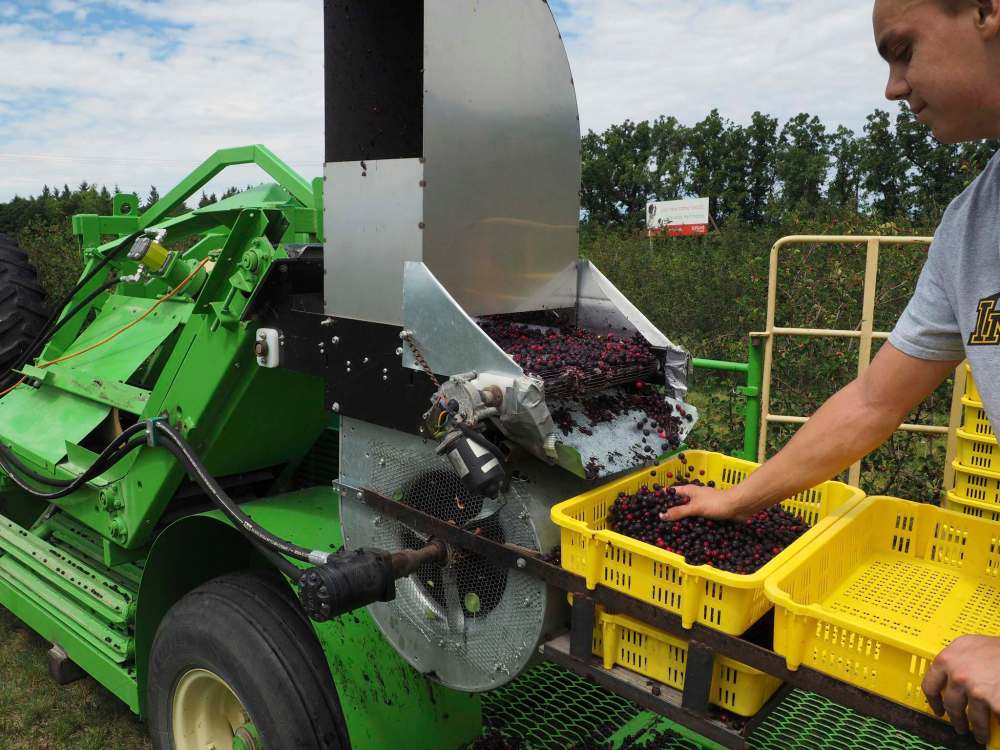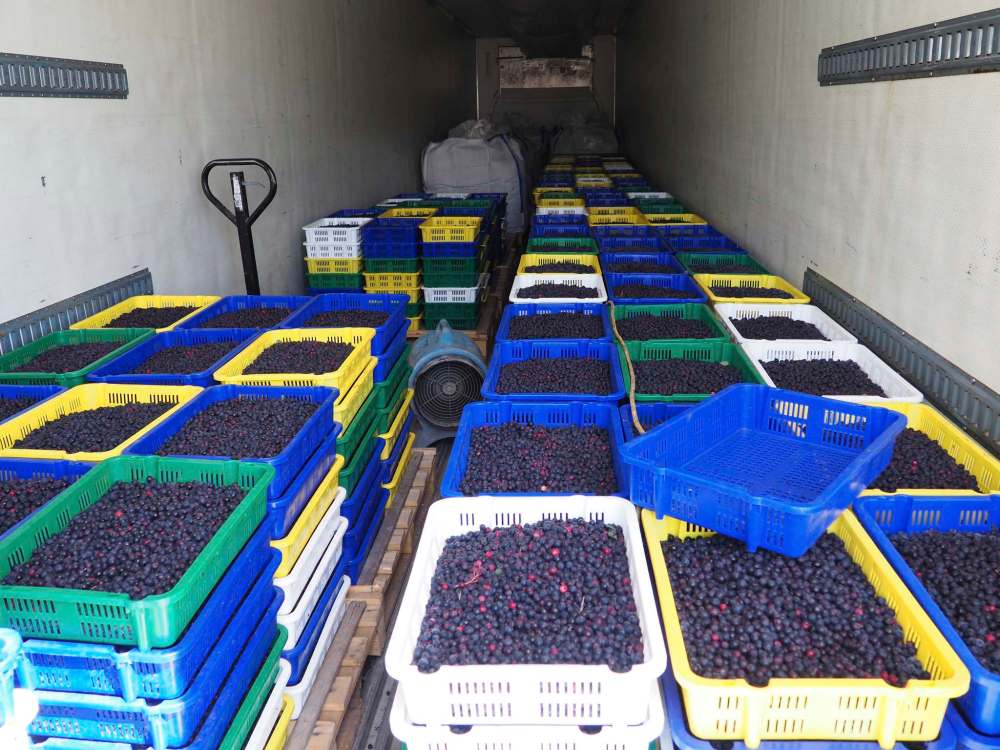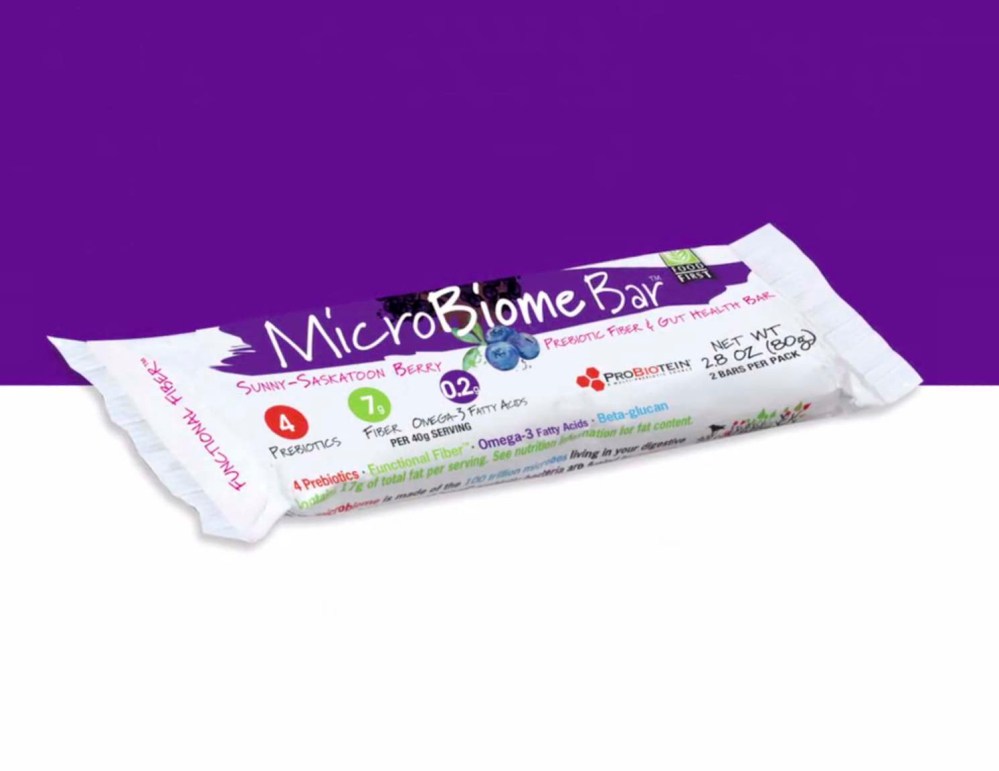Super saskatoons Interlake berry growers teaming up with pair of American companies to make health bars, nutraceutical products
Read this article for free:
or
Already have an account? Log in here »
To continue reading, please subscribe:
Monthly Digital Subscription
$19 $0 for the first 4 weeks*
- Enjoy unlimited reading on winnipegfreepress.com
- Read the E-Edition, our digital replica newspaper
- Access News Break, our award-winning app
- Play interactive puzzles
*No charge for 4 weeks then billed as $19 every four weeks (new subscribers and qualified returning subscribers only). Cancel anytime.
Read unlimited articles for free today:
or
Already have an account? Log in here »
Hey there, time traveller!
This article was published 18/02/2019 (1886 days ago), so information in it may no longer be current.
Selling foreign markets on the wonders of saskatoon berries is still a struggle, but Interlake Saskatoons hopes two new projects across the border are a good start.
In tiny Walhalla, N.D., which has a population of 900, a firm called Food First has just launched an online Kickstarter campaign for a saskatoon-based health bar made with Manitoba-grown product.
In Minneapolis, Step One Foods is sourcing from Interlake Saskatoons to make a range of nutraceutical products.
“Food as medicine is the concept,” said Doug Langrell, a partner in Interlake Saskatoons. Saskatoons are known as a super healthy berry-like fruit, with twice the antioxidants as blueberries, and high in protein and anti-inflammatory properties. Some properties include vitamins, flavonoids, phenols and Omega-3 fatty acids.

“(The companies) want to do what no one has yet done, and that is establish American awareness of saskatoons as a super fruit,” Langrell said.
That’s been an uphill climb. While the purple berries grow in northern U.S., they are called juneberries.
“The awareness of saskatoons is generally limited to basically the Prairie provinces and northern U.S., and even there to a limited degree,” Langrell said.
Even so, Food First has chosen to go with the Canadian name for it — Sunny Saskatoon Berry health bar — because it sounds more interesting.
‘(The companies) want to… establish American awareness of saskatoons as a super fruit’
— Doug Langrell, a partner in Interlake Saskatoons
Located directly south of Winkler, Food First started 25 years ago as feed manufacturer SweetPro Feeds for horses and cattle. Ranchers would say the product made their livestock so healthy and their horses’ coats so shiny that they wondered what it might do for their two-legged owners.
Owner Bob Thornberg just laughed, but three years ago, he started a sister company and produced a line of healthy snack bars called MicroBiome Bars. The bars promote what’s called “gut health.” The product base is a fermented blend of organic grains: wheat, oats, barley malt, flax and yeast. They contain prebiotics that enhance and diversify the microbes in the body to fight disease and viruses.
The Sunny Saskatoon Berry bar is its fourth variety. “The saskatoon attracted us for its antioxidant bump,” company operations manager Jordan Thornberg said.
To date, MicroBiome Bar sales are mostly online. However, CVS Pharmacy, a big company across the border, is about to launch a variety pack of MicroBiome Bars in 100 stores for a six-month trial period. If the product passes a sales threshold, MicroBiome Bars will go into all 9,800 CVS stores across the U.S.
Not only does it taste good, Langrell said, “it gives me a very strong, immediate energy rush.” Food First’s Kickstarter campaign is not a make-or-break test — the company will be producing regardless of the results — but it can help accelerate the company’s progress, Thornberg said.
It’s not a donation site. The public can buy various sized packages of bars at different prices and the product will be shipped out by mail order. People can find the online page at kickstarter.com and by typing MicroBiome Bar in the search window.
Step One Foods already has Manitoba saskatoons as an ingredient in all seven of its products: snack bars, pancake mix and smoothies. The saskatoons are used to help upgrade its products to health food status.

Step One makes a line of foods for people who have high cholesterol, but don’t like taking prescription statin drugs, or who suffer side effects from the drugs. That may sound like a niche market, but it’s estimated to include nearly 40 million people. Step One products are also only available online.
The two projects are the first ventures into the U.S. market for Interlake Saskatoon, other than selling some frozen saskatoons into the pie market. For the food ingredient market, the saskatoons are turned into a powder, a process developed at the Manitoba Food Development Centre in Portage la Prairie. Food First in Walhalla now handles that processing.
Except for jams and pies, the powder is easier to work with as a food ingredient, Langrell said. The powder retains the saskatoon taste, aroma and health properties, and ships and stores better, he said.
In addition to exports, Interlake Saskatoons sells thousands of pounds of fresh saskatoons every summer out of a building on the northwest corner of Warren on Highway 6, just north of Winnipeg. They also freeze berries and sell to local restaurants. Their berries are used in Cramptons Manitoba Maid saskatoon jams and saskatoon marmalades.
Interlake Saskatoons is a consortium of growers in the South Interlake area that includes seven partners: Langrell and his sister, Jennifer Studler; Rick Rutherford of Rutherford Farms at Grosse Isle and his sister, Wendy Rutherford; Craig Riddell; Bob Hamlin; and Tom Dykstra from Balmoral. They harvest five orchards and also operate a marketing arm called Purple Fit. Last year, they harvested 30,000 pounds of saskatoons.
bill.redekop@freepress.mb.ca











